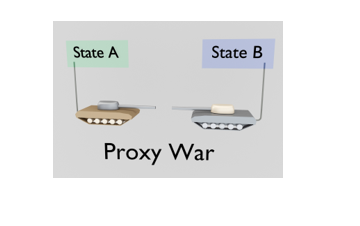
Review of the Routledge Handbook of Proxy Wars (with two DPIR contributions)
DPhil candidate Giuseppe Spatafora summarises the key findings of the recently published Routledge Handbook of Proxy Wars, which aims to present the various facets of the phenomenon. The Handbook contains two contributions by DPIR scholars: one by Spatafora himself on the extent to which the Spanish Civil War presents proxy war characteristics, and one by Dr. Vanessa Meier on quantitative approaches to the study of proxy wars. The phenomenon of proxy wars has existed for centuries, well before what is commonly perceived as its heyday—the Cold War. Albeit more modern, the study of proxy wars is not in its infancy either. The Routledge Handbook of Proxy Wars (2023), edited by Assaf Moghadam, Vladimir Rauta, and Michel Wyss, aims to illustrate …
Italy’s Other Wave: Protests during the Second Lockdown
Italy was the first Western democracy to impose a country-wide lockdown in response to the COVID-19 pandemic. Despite successfully curbing the number of infections in the first half of 2020, Italy saw its cases increase again in October, prompting Prime Minister Giuseppe Conte and local governments to announce new restrictions to curb the cresting second wave. Despite the clear memory of the significant death toll and warnings of the dangerous winter to come, however, these announcements have been met with opposition. On the evening of the 23rd October, thousands gathered in the streets of Naples to protest against the forced closure of shops and restaurants and the threat of a local lockdown. A group of about 300 people—including youth, extremist political groups, and football hooligans—escalated into a violent protest, attacking police officers, burning cars, and vandalizing private …
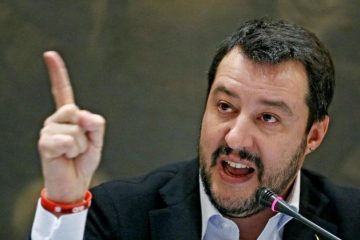
The Captain at the Helm: The Rise of the League and the Imbalances of the Italian Government
Italy’s post-war political system is not new to dramatic government changes and sudden reversals of fortunes. The experience of the first populist experiment in government thus far is no exception. The elections of March 4th, 2018, were nothing short of a political earthquake. The most dramatic result was the success of the Five Star Movement (M5S). The political formation, created by comedian-turned-guru Beppe Grillo and led by his former lieutenant Luigi Di Maio, became the strongest party in Parliament with 32.7% of votes, wooing voters away from Matteo Renzi’s PD. On the right, the League took over Berlusconi’s Forza Italia as the main political party, winning over 17% of votes. This ‘sorpasso’ emboldened Salvini to break with the electoral pact …

China’s Belt and Road – Threat to or Opportunity for the Liberal Order?
In 2013, Xi Jinping announced the idea of building a ‘Silk Road Economic Belt’ across Eurasia. A few months later, he proposed a ‘21st Century Maritime Silk Road.’ Five years on, these two projects have been merged in what is arguably the most ambitious economic and diplomatic enterprise of the 21st century: the Belt and Road Initiative (BRI), or One Belt One Road (OBOR). BRI involves over 80 countries across three continents and along six economic “corridors”, plus an additional route to the Arctic. It encompasses 900 infrastructure and development projects with a combined cost of US$900 billion. The Belt and Road Initiative includes projects such as the China-Pakistan Economic Corridor (CPEC), the trans-Eurasian railways network, Ethiopia’s Eastern Industrial Zone …
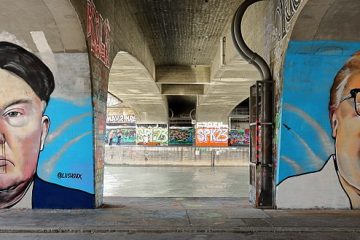
The Trump-Kim Summit: Three Reasons Why We Got This Far
Donald Trump surprised the world by accepting an invitation to meet with North Korea’s leader Kim Jong-un. The announcement came unexpectedly, after more than a year of rising tensions between the United States and North Korea over the latter’s nuclear programme. What are the reasons for this diplomatic about-face? We can identify three reasons that have led to this development. The first is North Korea’s long-standing desire of building bilateral negotiations with the United States. The second reason is President Trump’s preference for personal and unconventional diplomacy. Finally, South Korea’s mediating role under the Moon administration has created the conditions to reopen diplomatic contacts between the two opponents. North Korea’s Quest for US Recognition Although North Korea has repeatedly threatened …
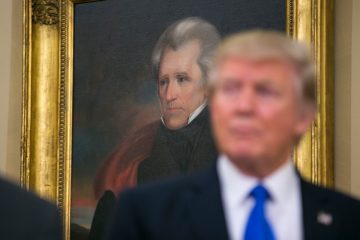
The Jacksonian Foundations of Trump’s American Foreign Policy
One year has passed since Donald Trump’s inauguration as president and his promise to reorient American foreign policy away from a liberal internationalist agenda to putting “America First.” Since January 2017, the Trump administration has jettisoned major diplomatic achievements of the Obama years – the TPP and the Paris Climate Change Accord. Further, he has called for a revision of the Iran Nuclear Deal and NAFTA, escalated the nuclear standoff with North Korea and threatened to disrupt relations with its long-term allies in Europe and Asia. The main features of the new American foreign policy so far have been: A transactionalist, business-style approach to international bargains, with the aim to negotiate or re-negotiate treaties on more favourable grounds for the …
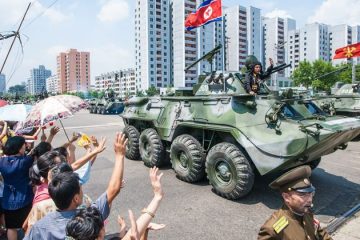
Is North Korea Really that Crazy?
Over the last months, the escalating tensions between the United States and North Korea over the latter’s nuclear programme have dominated news headlines. US President Donald Trump has called North Korean leader Kim Jong-Un “rocket man” in front of the United Nations, labelled him crazy and insane, and stated he was willing to halt Kim’s pursuit of nuclear weapons by all means, while North Korea labelled Trump a “dotard.” Not everyone might like Trump’s colourful rhetoric, but his remarks strike a chord with many. The Democratic People’s Republic of Korea (DPRK), or North Korea, threatens to turn Seoul into “a sea of fire” and to destroy the United States. Repeated rockets launched towards Japan seem like a preamble to a …










